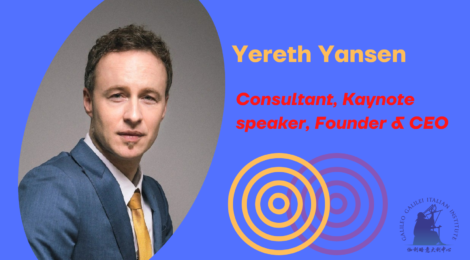
Galilei Circle of Friends – Interview with Yereth Jansen
Yereth Jansen blends his entrepreneurial spirit with a deep appreciation for cultures, particularly within China’s vibrant tourism and marketing sectors. Fluent in Chinese, he enjoys the art of bridging different worlds through language and cultural understanding. In his roles as Deputy Secretary-General of the China Advertising Association’s International Communication Committee and as a UNWTO consultant, Yereth builds strategies that highlight China’s unique regional offerings to the globe. As a common speaker on international stages, he shares his experiences and insights with a personal touch. Beyond his professional pursuits, Yereth’s passion for photography adds a creative dimension to his journey, capturing moments that weave together his love for marketing, culture, and storytelling.
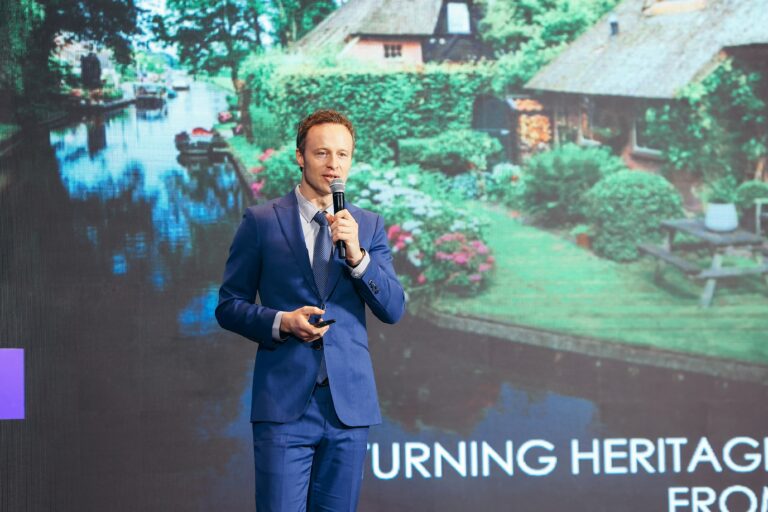
INTRODUCTION – Personal relationship with China
How did your experience with China begin? Was it a casual meeting, related to your work, for pleasure?
My journey to China started in 2007 as a backpacker, armed with a Lonely Planet guide. My simple plan was to land in Hong Kong, rendezvous with a Dutch friend in Lhasa after about a month, and then return from Beijing two months later. My only luxury was time; everything else seemed to be dictated by fate or maybe luck. On a tight student budget, my knowledge of China was minimal — I was unfamiliar with chopsticks, couldn’t utter a greeting in Chinese, and had no itinerary. It was as much an exploration of China as it was a discovery of myself.
An eastern German, antique, fully manual Praktica SLR camera was my prized possession. However, a week into my travels, its ISO dial malfunctioned, disrupting my photography plans. At the time I was obsessed with photography and was determined to buy a new camera before reaching Tibet. Contrary to my expectations, Lhasa was surprisingly modern, and I was able to purchase a Canon 400D, albeit at a hefty price for my budget at the time. Although it wasn’t a great camera by today’s standards, that machine helped me capture some of my all-time favorite photos during that time on the Tibetan plateau. It was a journey I’ll always cherish.
It wasn’t until two years later in 2009, after a second trip and much deliberation, that I decided to move to China. Despite my limited language skills, I was confident I could navigate this new chapter. Back then, anyone who spoke a few words of Chinese seemed like a linguistic magician to me. Little did I know that I would eventually join their ranks.
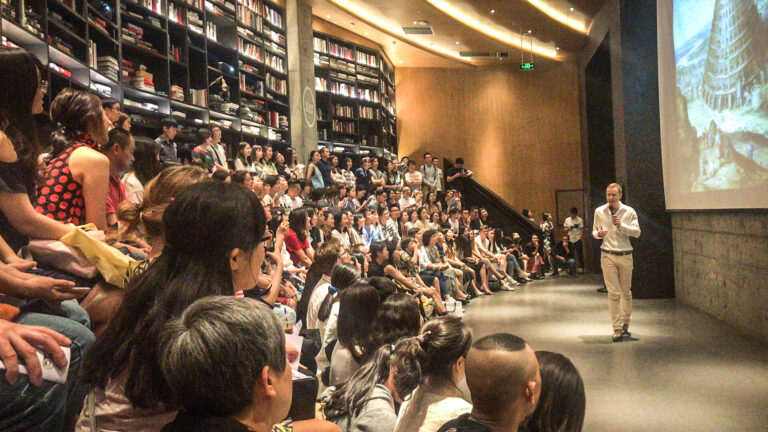
How has your relationship with China evolved over time?
In my early days in China, everything felt like a fairy tale. It was akin to landing on an alien planet — a stranger in a strange land — a surreal experience that, in many ways, helped me reinvent and rediscover myself multiple times. As China grew and evolved, so did I.
Gradually, China became my second home. While I may always be considered an expat, I feel deeply connected to this country and its culture. The constant sense of surprise has faded over the years, replaced by an understanding that anything is possible here.
What has your experience in this splendid country taught you at a personal level?
China has been a crucible of personal growth for me. It’s made me humbler, yet simultaneously bolstered my confidence. It’s shown me that even a computer science graduate can transform into a confident public speaker, given the right catalyst. It’s taught me the relativity of right and wrong, and how these concepts are deeply rooted in culture. It’s proved that differences can be bridged with mutual respect and understanding.
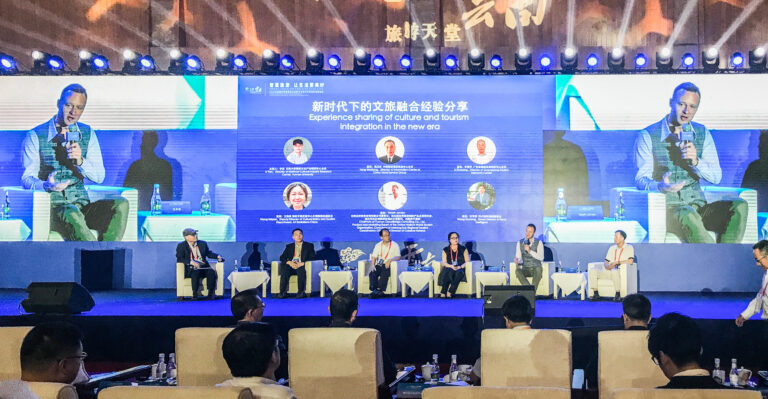
BUSINESS in China – Kunming and Shanghai
Tell us about your business experience in Kunming. What was your role there and what were the main results you achieved over the years in that part of Southwestern China?
My entrepreneurial journey in Kunming began in early 2012, alongside my business partner at the time. Before that, I was freelancing, spending lots of time in Dali — a mesmerizing tourism destination — and working for the Macao, China, International Digital Cinema Festival. My responsibilities there included designing, building and maintaining the official website as well as on-site photography. It was an enriching experience, connecting me with Hollywood directors, producers, and actors, some of whom I remain friends with to this day.
In late 2011, we acquired GoKunming.com, a local website popular for news, events, and community engagement. We later founded CloudBridge, which took GoKunming under its wing. We developed it further into a regional hub, revamping its design for mobile responsiveness as smart phones were conquering the planet. Gradually, our focus shifted towards destination marketing, aiding local tourism boards with promotional projects, video production, photography competitions, and website development.
What were the main challenges you met in your experience in Kunming, and what were the positive surprises?
Navigating the media business landscape in Kunming was challenging. We had to tread carefully around sensitive topics and reshape our business model to collaborate with government entities. Venturing into government tenders as a foreign-owned enterprise in Southwest China was daunting, and many advised against it. Defying expectations, we succeeded, marking one of my proudest achievements.
The transition to the travel industry was unexpected but natural. It allowed me to explore Yunnan’s breathtaking landscapes. One of our first projects with the Stone Forest, a UNESCO heritage site, led us to discover Dadieshui, the province’s tallest waterfall, a hidden gem that few knew about.
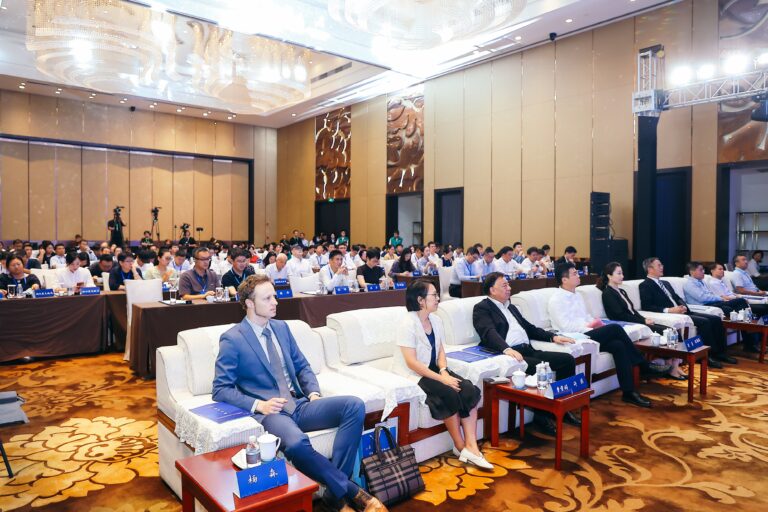
You then moved to Shanghai to start new business experiences. Tell us about what you have achieved so far in this global metropolis and what you have learned.
The outbreak of COVID-19 while I was still in Kunming marked an incredibly challenging phase. It was a period filled with uncertainty and despair. Our business was hemorrhaging funds daily, and the painful decision to let go of our staff one by one loomed over us. Amidst this turmoil, I realized a significant change was imperative. Thankfully, by the second half of 2021, we began to see a recovery, signaling the right moment for a new direction.
Moving to Shanghai was a leap into excitement. I had initially bypassed Shanghai in favor of experiencing the more traditional aspects of China, but post-COVID, I was more than ready to immerse myself in the city’s unique fusion of Eastern and Western elements. Luckily, I missed the renowned Shanghai lockdown by a few months, spending most of 2022 in other parts of China. It was also during this time that I established a joint venture in Shanghai with New York City’s Darling Advertising + Design. Additionally, I had started representing Alliance Experts, a Dutch global consultancy firm, as their China Director. This role involved tapping into my extensive network, cultivated over years, to facilitate cross-border business development.
This move to Shanghai, especially during the COVID years, necessitated reinventing myself once more. Especially 2023 brought a wave of new opportunities and change with China’s reopening. My appointment as Deputy Secretary-General of the International Communication Committee at China Advertising Association, new client development in Eastern China, including in Jiangsu province, and my recent selection as a Shanghai Global Tourism Ambassador, have all been rather pivotal.
We are also in the process of creating training programs for international companies, aimed at navigating the Chinese market effectively. Similarly, we’re developing workshops for international destinations, focusing on attracting Chinese travelers in this new era. The rapid pace of development in China, often referred to as ‘China speed’, has widened the gap between Eastern and Western consumer trends and online ecosystems. There is an increasing need for efforts on both sides to bridge this gap and foster a deeper mutual understanding.
How important was it to know the local culture and language in managing daily activities and projects?
Proficiency in Chinese has been vital in my work. The subtleties of the language and culture are such that relying on translation would be inadequate. My keynote speeches are predominantly in Chinese, catering to audiences from all over the country, many working in government. Understanding the language and culture is not just beneficial but, I believe, necessary for anyone looking to integrate into a new country.
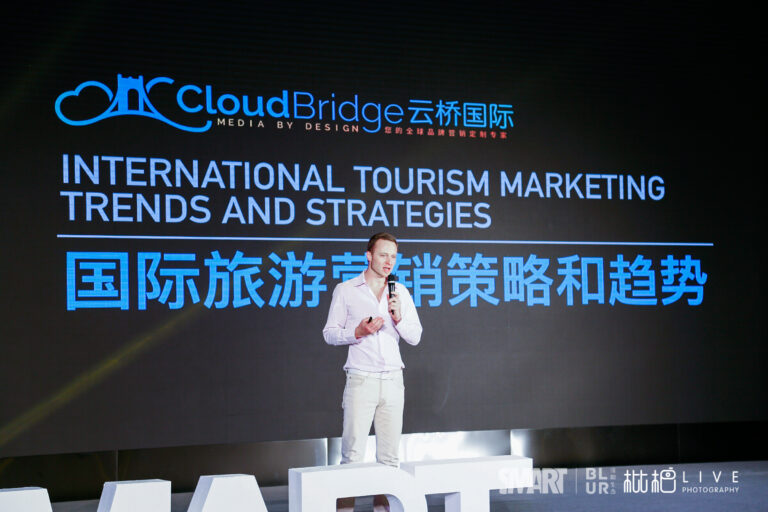
FUTURE GOALS
What are your future goals in China? Do you have any plans to come back to Europe in the near future?
My future in China involves expanding our business further eastward and globally. While I don’t plan on relocating to Europe, I foresee establishing bases in both regions to facilitate cross-border initiatives. The dynamism and endless opportunities in China keep every day interesting, especially with the increased travel and international exchanges possible post-COVID. Despite the current economic slowdown, I remain cautiously optimistic about the future, both short-term and long-term. The introduction of recent visa-free policies underscores this optimism, highlighting the growing openness and potential for international collaboration.
Interview by Marco Bonaglia



